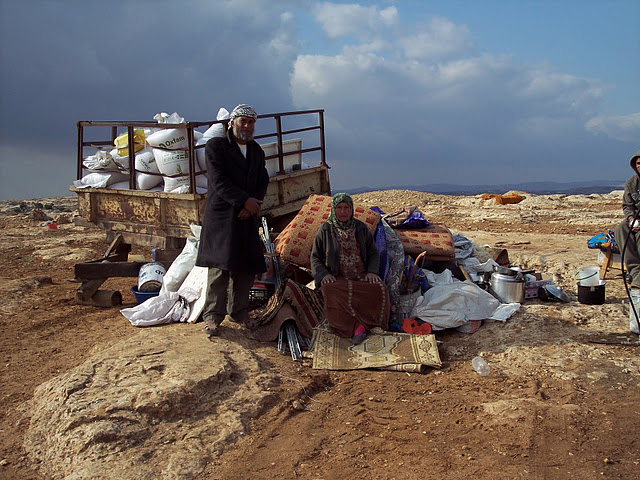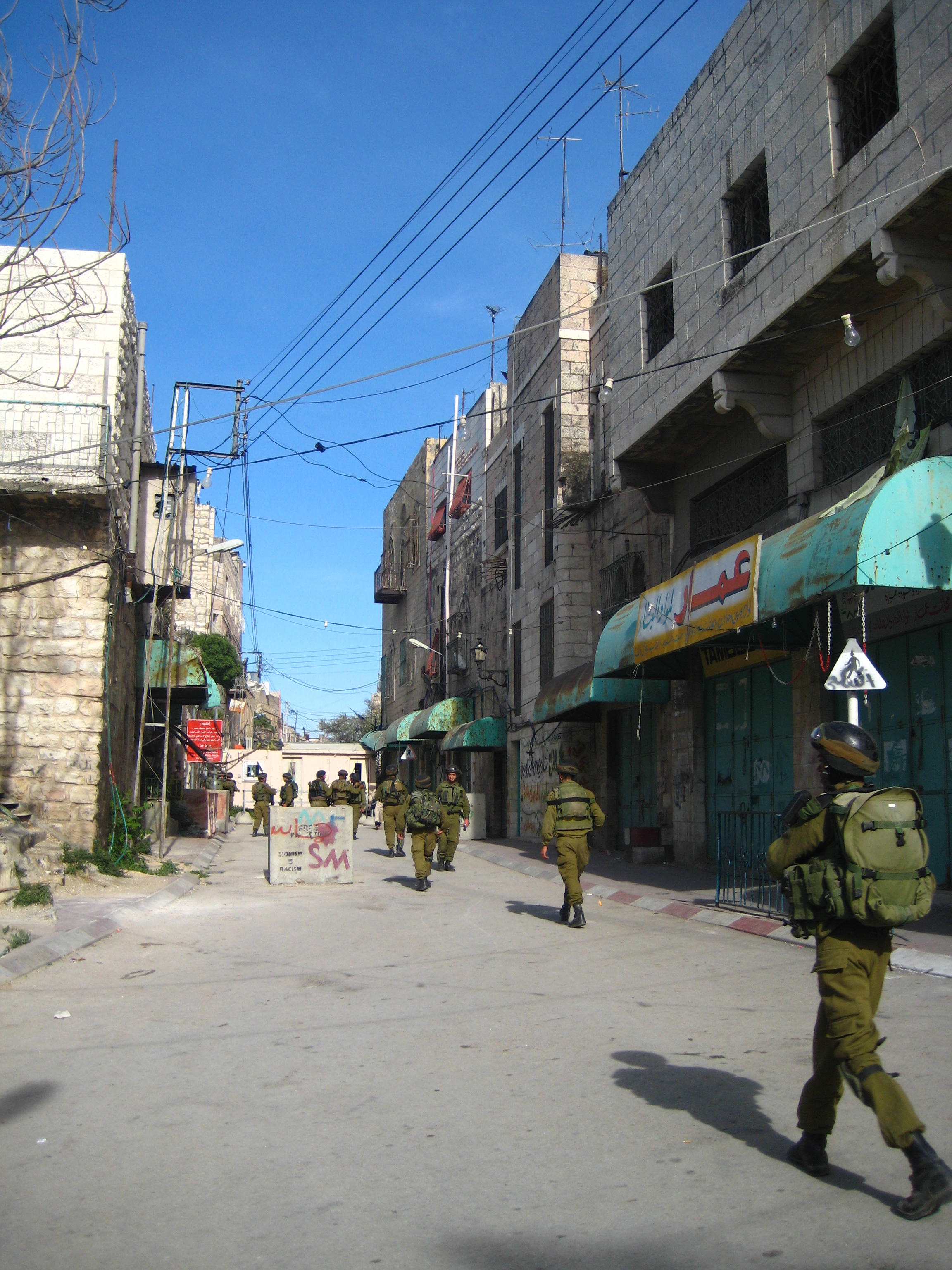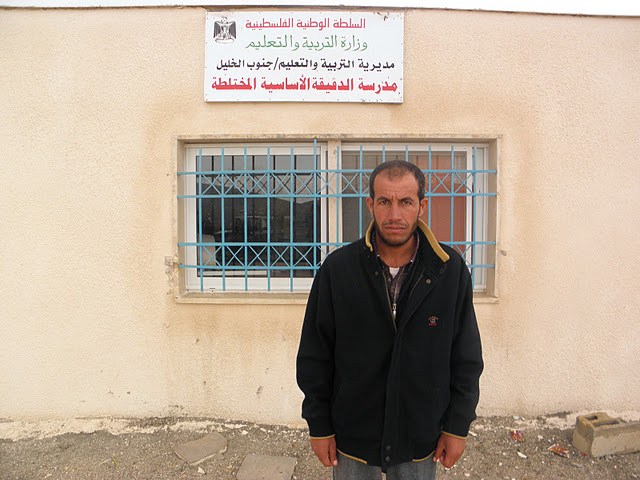Month: November 2011
-
Four houses and one mosque fall to Israeli demolitions in Susiya
by Fida Far 25 November 2011 | International Solidarity Movement, West Bank Four houses and one mosque were destroyed this morning, November 24th, in the villages in the south of the West Bank. Around 10 am, fifty soldiers and seven police cars arrived to village Susiya. Two bulldozers destroyed the house of Musa Magna’s family…
-
Political organization, resistance, and education in Israeli prisons
by Alistair George and Ben Lorber 24 November 2011 | International Solidarity Movement, West Bank Raed Atrash, 25, is a presenter and journalist working in Hebron; his work focuses on prisoner’s issues. He interviews prisoners, ex-prisoners and their families, and he writes articles and presents programmes on the issue. Issa Amro is the director of…
-
Dkaika: Israel continues to expel Bedouins
by Aida Gerard 23 November 2011 | International Solidarity Movement, West Bank The entire Bedouin village of Dkaika encounters demolitions, and all the villagers face expulsion. Every single construction of Dkaika has a demolition order totally over 75 demolition orders including a mosque, a school, a graveyard, water cisterns, housing tents, and folds for sheep.…



